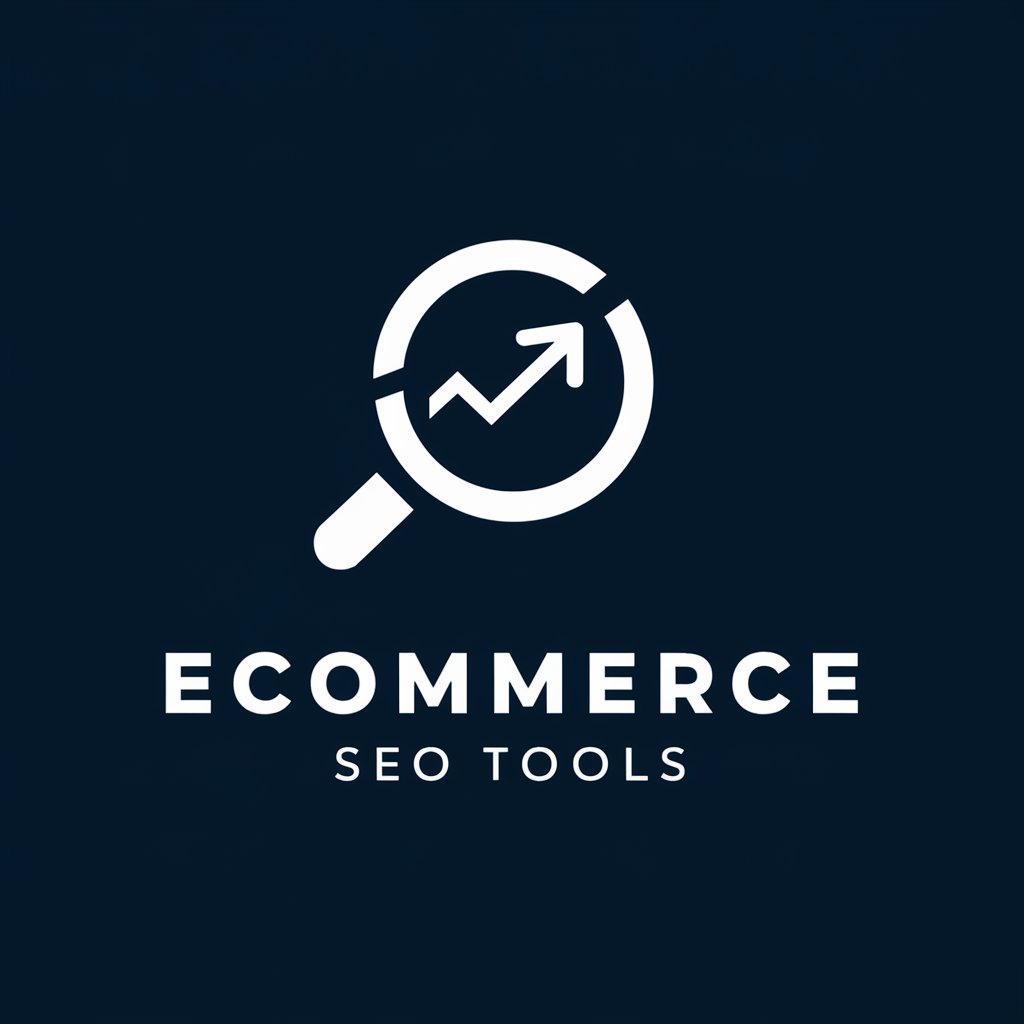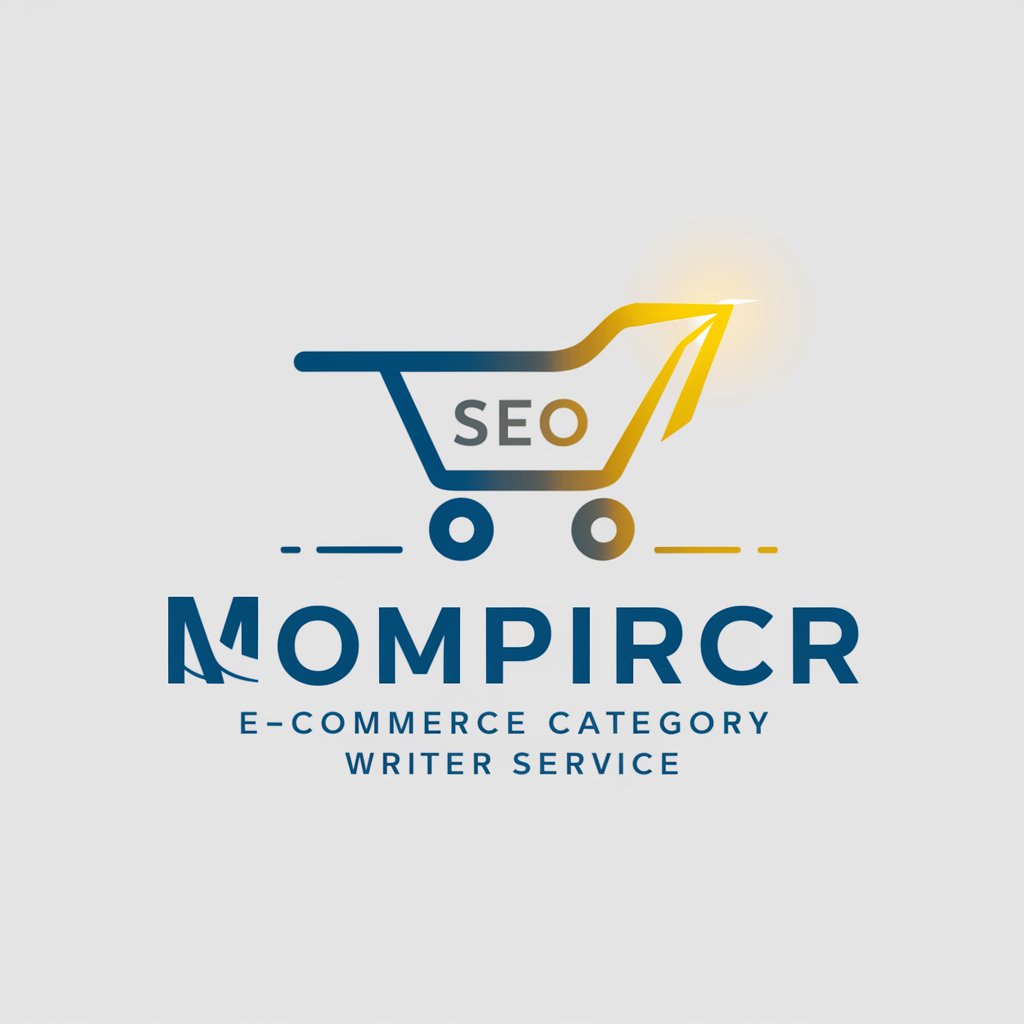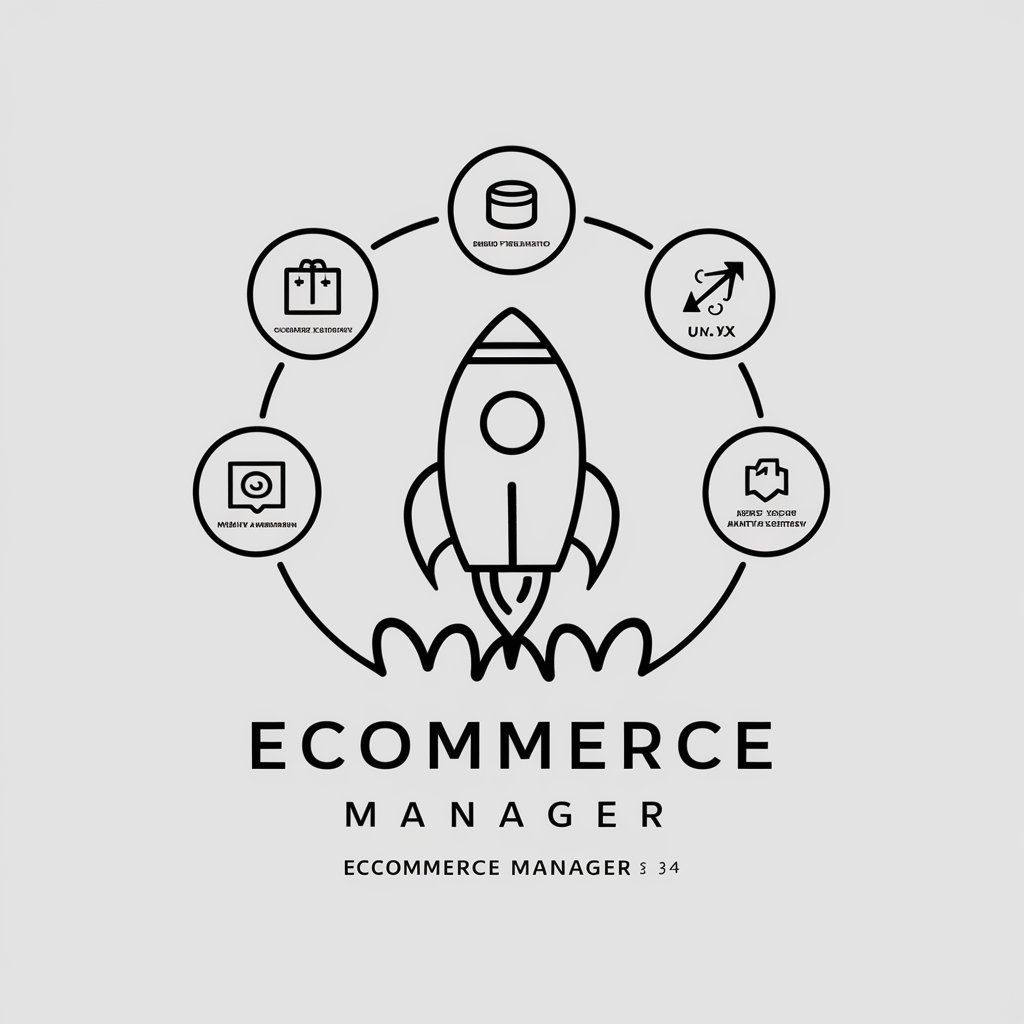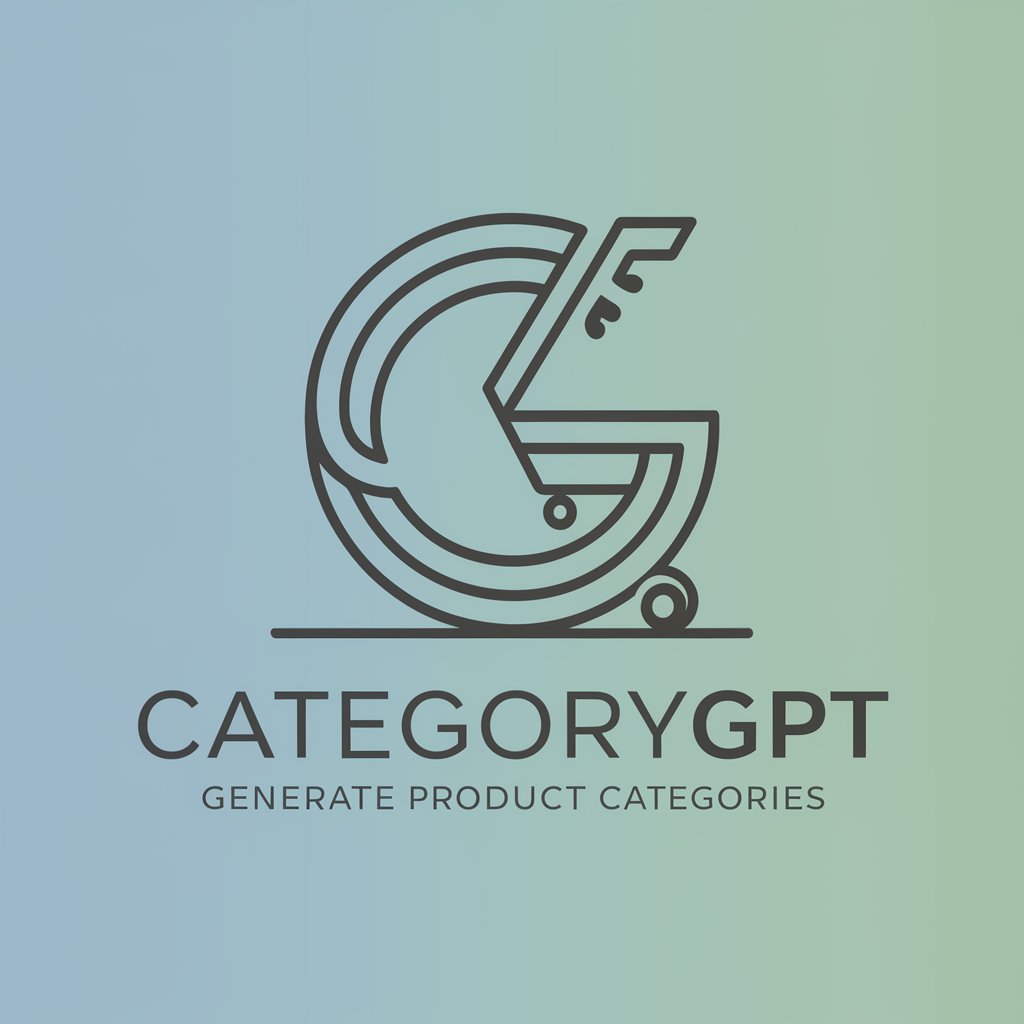
Ecommerce SEO Tools - SEO Analysis and Recommendations

Welcome to Ecommerce SEO Tools, your partner in optimization.
Optimize Ecommerce with AI-Powered SEO
Analyze the SEO performance of your product pages with...
Optimize your eCommerce store categories by...
Enhance your product descriptions using...
Boost your search engine rankings with...
Get Embed Code
Ecommerce SEO Tools: Enhancing Online Store Visibility
Ecommerce SEO Tools is designed to optimize ecommerce store category and product pages for search engines. It focuses on analyzing the content, layout, and features of these pages to improve their search engine rankings and user engagement. The tool performs keyword and NLP (Natural Language Processing) term research, targeting terms that customers are likely to use. It then crafts optimized content, including category descriptions and product descriptions, that incorporates these terms. Additionally, it advises on content structure, suggests in-depth content ideas under the product grid to address customer queries, and identifies internal linking opportunities. For example, in a scenario where a user wants to optimize a 'Women's Running Shoes' category page, Ecommerce SEO Tools would analyze the page, suggest relevant keywords like 'durable running shoes for women,' craft a compelling category description, and provide content ideas such as guides on choosing running shoes. Powered by ChatGPT-4o。

Core Functions of Ecommerce SEO Tools
Category Page Optimization
Example
Crafting a 2-3 sentence category description for 'Women's Running Shoes' using primary keywords.
Scenario
An online sports store wants to improve the visibility of its 'Women's Running Shoes' category page. Ecommerce SEO Tools analyzes the page, suggests keywords, and crafts an optimized category description.
Product Page Optimization
Example
Creating a detailed product description for 'Trail Running Shoe Model X' that includes key features, benefits, and uses targeted keywords.
Scenario
A retailer aims to boost the search engine ranking of a specific product page. The tool analyzes the product, suggests keywords like 'waterproof trail running shoes', and creates an engaging, SEO-optimized product description.
In-depth Content Suggestions
Example
Suggesting a guide titled 'How to Choose the Right Running Shoes for Every Terrain' under the product grid of the running shoes category.
Scenario
To enhance user engagement and provide value, the tool recommends adding in-depth content under the product listings, addressing common customer queries and improving SEO.
Internal Linking Strategy
Example
Identifying linking opportunities from the 'Running Gear' category to individual product pages for running shoes.
Scenario
Improving site navigation and spreading link equity throughout the site by suggesting internal links that connect related content and product pages.
Who Benefits from Ecommerce SEO Tools?
Ecommerce Business Owners
Owners of online stores can use these tools to improve their site's visibility, attract more traffic, and increase sales. The tools are particularly beneficial for small to medium-sized businesses looking to compete with larger competitors.
SEO Specialists
SEO professionals working on ecommerce projects can utilize these tools to streamline their workflow, conduct effective keyword research, and craft optimized content more efficiently.
Content Creators and Marketers
Marketers and content creators can leverage the tool to ensure their content is not only engaging but also SEO-friendly. This is crucial for ecommerce sites where content plays a key role in conversion.
Web Developers
Developers designing ecommerce platforms can integrate SEO best practices from the ground up, ensuring the site structure, layout, and content are optimized for search engines.

How to Use Ecommerce SEO Tools
1. Start Your Free Trial
Head over to yeschat.ai to begin your free trial, accessible without the need for logging in or subscribing to ChatGPT Plus.
2. Enter Your Details
Provide the name and URL of your ecommerce category or product page you wish to optimize. No personal details are required at this stage.
3. Analyze and Generate Recommendations
The tool will analyze your page's content, layout, and SEO elements, then generate a comprehensive list of optimization suggestions.
4. Implement Suggestions
Apply the tool's recommendations on your category or product page, including content enhancement, keyword integration, and internal linking.
5. Monitor and Adjust
Track the performance of your changes over time and return to the tool for further optimization suggestions as needed.
Try other advanced and practical GPTs
Ley de Amnistia Procés
Amnesty law insight with AI power

Prompt Extractor
Transforming Images into Detailed Prompts with AI

Effective DART/Flutter coding Assistant
Elevate Your Code with AI-Powered Expertise

ストーリーテラーGPT
Unleash Your Creativity with AI

Your Actuary
Empowering Decisions with AI Actuarial Expertise

FTL GPT
Empowering future explorations with AI.

Category Descriptions for Ecommerce
Elevate Your Ecommerce with AI-Powered Descriptions

Ask Goldie Bug
Illuminating the Golden Path with AI

Chat Translate
Empowering Communication with AI Translation

matsuhouse
Decoding Golf Rules with AI

大麻栽培相談くん
AI-powered cannabis cultivation expert

Troidigezh Breizh (Breton Translator)
AI-Powered Breton Language Translations

Frequently Asked Questions about Ecommerce SEO Tools
Can Ecommerce SEO Tools optimize for any ecommerce platform?
Yes, the tool is designed to be platform-agnostic, offering optimization suggestions that can be applied across various ecommerce platforms, including Shopify, Magento, and WooCommerce.
Does the tool support keyword research for specific niches?
Absolutely, it conducts thorough keyword and NLP term research tailored to your product or category's niche, focusing on terms your customers are likely to use.
How does the tool understand buyer intent?
By analyzing top search results for your main keywords, the tool gauges the type of content ranking well, helping to align your page content with buyer intent.
Can I use this tool for optimizing existing product descriptions?
Yes, the tool is perfect for revamping existing product descriptions, suggesting enhancements for SEO and user engagement.
How often should I use the tool for optimization?
Regular use is recommended, especially after adding new products or when aiming to improve your site's ranking for specific keywords.





